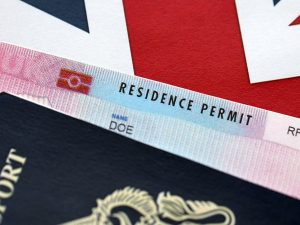
As the world has turned increasingly towards remote working since the Covid pandemic hit, more people are turning to flexible work arrangements and working from home.
As a result, the once relatively fringe movement of digital nomadism is turning increasingly mainstream, with people on fully remote jobs deciding to work from different parts of the world.
But how is it to live like a digital nomad? What sounds like a dream come true can also have some more problematic points.
While I have never personally worked as a digital nomad, I have been an expat between Austria, Denmark and the UK. I want to share some considerations I feel are the most important pros and cons of living as a digital nomad and how best to take advantage of remote working locations.

Finding your ideal digital nomad setup needs some thoughts
While it sounds appealing to work wherever and whenever possible, it depends on your profession and the equipment you need for your work. As a freelance writer, I personally find it hard to work on a laptop only. I need a proper office setup with fast Wi-Fi, my favourite keyboard to type and two high-resolution screens.
Occasionally, I try to work from a coffee shop. However, it is not suitable for most of my writing, rather to generate ideas and maybe journaling.
Imagining a digital nomad life, I would definitely require a proper work setup to perform my job efficiently. This means bringing along more than a bag and working from the beach. So as for myself, I could live as a digital nomad in various cities with infrastructure and a nice rental home. However, a beachcomb or a boat wouldn’t work out.
So, it might be worth asking yourself the question: what do I really need for my work in terms of equipment, and where can I ideally work from? Then adapt your digital nomad destinations accordingly: city, beach or boat - all work for different people.
The bureaucratic stuff: tax and health insurance
If you decide to live as a digital nomad, it makes sense to first get the bureaucratic stuff in order. This includes planning for mundane things such as: where will my primary tax residency be?
Check your tax status
Different countries have varying rules on digital nomads, so you should make sure to discuss your plans with a tax advisor before you relocate, to ensure you don’t get double-taxed or are missing important tax returns in the country you are deemed as a tax resident. Similar considerations apply if you are selling your services via a limited company. Tax is not trivial at all, so it really does pay to get professional advice on this topic.
Health insurance - European Health Insurance Card
Within the European Union and the UK, health insurance is free in some countries, while others levy additional premiums tied to your income. If you are living permanently in another country, you will need to get registered with the local authorities responsible for granting access to the healthcare system.
In case you only stay in a country temporarily, such as for a holiday, a 'worliday' or for a short trip, you can use the European Health Insurance Card for full health care cover in any EU country, extending to Iceland, Liechtenstein, Norway and Switzerland or the United Kingdom.
This card is also available for UK residents via the NHS.
If you are spending time in countries not covered by the EHIC, it is necessary to arrange for travel insurance which covers you for the extended period of time you are planning to stay in the relevant country.

Money transfers and getting paid
If you decide to live in a different country, unless you only relocate around the EU, you will need to exchange currency. This is even more the case if your clients are located in different countries around the world and would like to pay you in US Dollars, Euros, British Pounds and maybe even exotic currencies.
While the currency exchange fees might not be a significant expense for small amounts, especially when using multi-currency debit cards, it is good to check the best options if you need to transfer larger amounts. CurrencyTransfer connects you to a network of FCA-authorised payment partners, giving you competitive exchange rates and speedy same-day payments.
The social life
This is usually a big pro of the digital nomad life: meeting new people, seeing new places and exploring different destinations is an instant excitement. However, this excitement typically wears off quickly, an effect described as a “culture shock” curve or effect.
As a result, some digital nomads like to travel frequently, a way of chasing novelty constantly and avoiding the handover and adaptation phase of culture shock.
In any case, if you decide to stay longer in a foreign country, it is wise to work on adapting and accepting the new culture.
Finding the right kind of support and network of friends is important. Without the right support network, it can be difficult to remain motivated and stay on top of work. While a few online classes or seminars can help bring success, a steady support network of people who understand the expat life or nomadic lifestyle is indeed helpful.
The Internations app, for example, allows you to meet new people in a relaxed atmosphere around shared social activities.
If you have decided to become a digital nomad, keep the basics in mind
There is much more to say about the digital nomad lifestyle, however, sometimes it is just helpful to keep the basics in mind: enjoy the flexibility to work from anywhere.
However, also keep all the boring considerations about your ideal work equipment, tax residency, and health insurance in mind and remember to actively engage in finding a consistent support network to ensure that this new lifestyle is working out eventually and you do not fall into an emotional trap of loneliness and the need to constantly chase new excitements.
With the right planning, becoming a digital nomad can be a rewarding and growth-inspiring experience that will give you many interesting experiences in life.
G.C. Wagner
Gustav Christopher is a writer specialising in finance, tech, and sustainability. Over 15 years, he worked in banking, trading and as a FinTech entrepreneur. In addition, he enjoys playing chess, running, and tennis.



